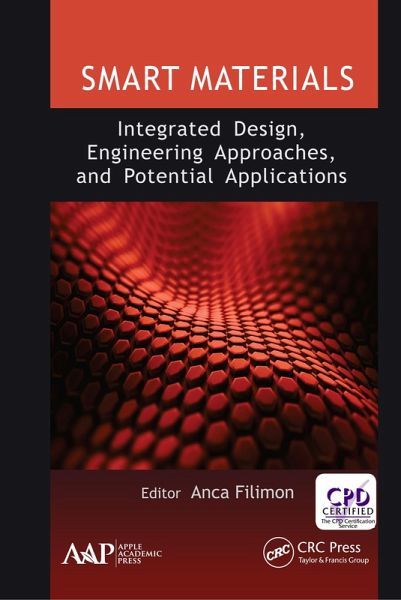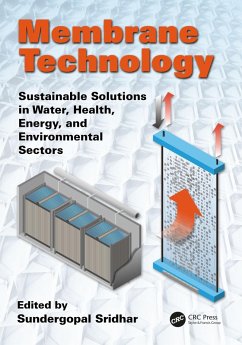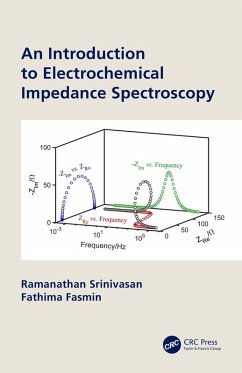
Smart Materials: Integrated Design, Engineering Approaches, and Potential Applications (eBook, ePUB)
Versandkostenfrei!
Sofort per Download lieferbar
121,95 €
inkl. MwSt.
Weitere Ausgaben:

PAYBACK Punkte
61 °P sammeln!
Polymer-based smart materials have become attractive in recent years due to the fact that polymers are flexible and provide many advantages compared to inorganic smart materials: they are low cost, they are easy to process, and they exhibit good performance at nano- and microscale levels.This volume focuses on a different class of polymers that are used as smart materials in the areas of biotechnology, medicine, and engineering. The volume aims to answer these questions: How do we distinguish 'smart materials'? and How do they work? The chapters lay the groundwork for assimilation and exploita...
Polymer-based smart materials have become attractive in recent years due to the fact that polymers are flexible and provide many advantages compared to inorganic smart materials: they are low cost, they are easy to process, and they exhibit good performance at nano- and microscale levels.
This volume focuses on a different class of polymers that are used as smart materials in the areas of biotechnology, medicine, and engineering. The volume aims to answer these questions: How do we distinguish 'smart materials'? and How do they work? The chapters lay the groundwork for assimilation and exploitation of this technological advancement. Four of the key aspects of the approach that the authors have developed throughout this book are highlighted, namely the multidisciplinary exchange of knowledge, exploration of the relationships between multiple scales and their different behaviors, understanding that material properties are dictated at the smallest scale, and, therefore, the recognition that macroscale behavior can be controlled by nanoscale design.
This volume focuses on a different class of polymers that are used as smart materials in the areas of biotechnology, medicine, and engineering. The volume aims to answer these questions: How do we distinguish 'smart materials'? and How do they work? The chapters lay the groundwork for assimilation and exploitation of this technological advancement. Four of the key aspects of the approach that the authors have developed throughout this book are highlighted, namely the multidisciplinary exchange of knowledge, exploration of the relationships between multiple scales and their different behaviors, understanding that material properties are dictated at the smallest scale, and, therefore, the recognition that macroscale behavior can be controlled by nanoscale design.
Dieser Download kann aus rechtlichen Gründen nur mit Rechnungsadresse in A, B, BG, CY, CZ, D, DK, EW, E, FIN, F, GR, HR, H, IRL, I, LT, L, LR, M, NL, PL, P, R, S, SLO, SK ausgeliefert werden.













